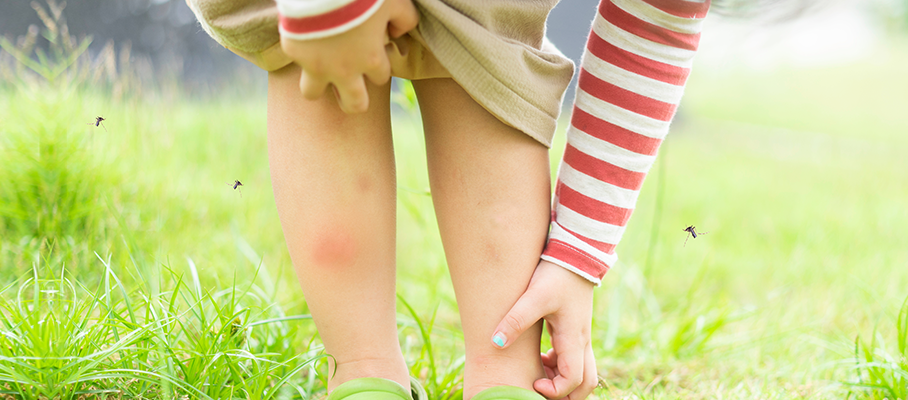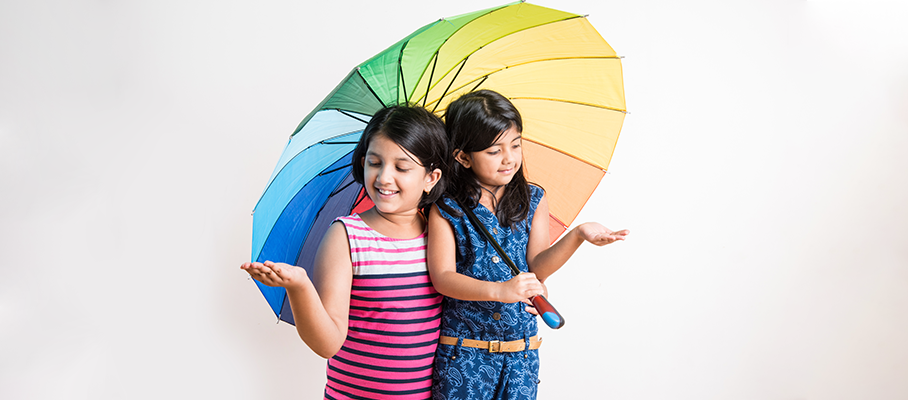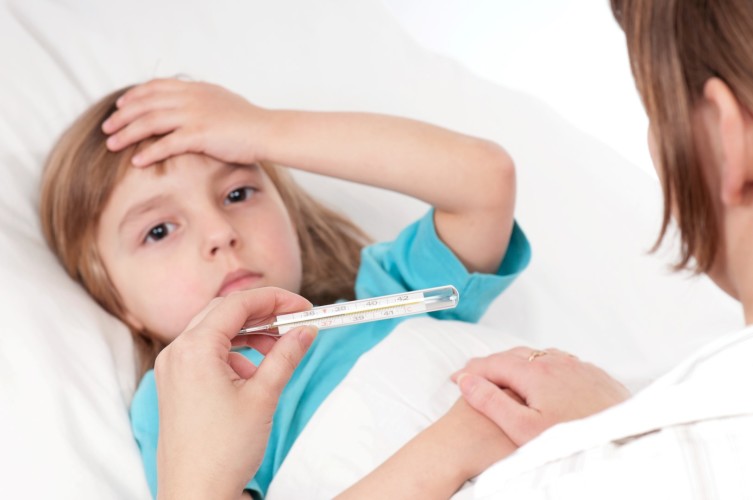monsoon preacautions
Why Dengue or Malaria is more common during Monsoon and how it can be avoided?
Dengue and malaria are spread by bite of vector carrying mosquitoes known as Aedes and Female Anopheles respectively. These diseases are common during monsoon as there is water logging and clogging at domestic and public surroundings. Mosquitoes thrive in stagnant water. Around 40% of world's population lives in regions and surroundings where there is a risk of dengue transmission. Lack of hygiene, poor sanitation at public places is also one of the important reasons for the spread of dengue and malaria. Unfortunately, as of now no vaccine has been developed which can protect against dengue and malaria fever. Only avoiding mosquito bites can prevent it. However, simple precautions can go long a way for the same Anyone who lives in or travels to an at-risk area can undertake several steps to avoid being bitten by infected mosquitoes - Mosquito repellents Using a repellent with at least 10 percent concentration of diethyltoluamide (DEET). There are cream-based and spray-based mosquito repellents available. Avoid using DEET on young children. Mosquito traps and nets Nets treated with insecticide are more effective, otherwise the mosquito can bite through the net if the person is standing next to it. The insecticide will kill mosquitoes and other insects, and it will repel insects from entering the room. These nets can be retreated after a period of time. Door and window screens Structural barriers, such as netting on the windows keep mosquitoes out from entering our home and workspaces. Avoid strong scents Heavily scented soaps and perfumes, longer exposure to strong scents may attract mosquitoes. Timing Try to avoid being outside at dawn and dusk. Stagnant water The Aedes mosquito breeds and multiplies in stagnant water. Checking for and removing stagnant water from your surroundings can help reduce the risk of malaria, dengue and other infections. To reduce the risk of mosquitoes breeding in stagnant water - Turn buckets and watering cans over and store them under shelter so that water cannot accumulate. Remove excess water from plant pot and plates. Clean animal/bird water feeder daily. Scrub containers before use. Loosen soil from potted plants, to prevent puddles forming on the surface. Make sure scupper drains are not blocked and do not place potted plants and other objects over them. Use non-perforated gully traps, install anti-mosquito valves, and cover any traps that are rarely used. Do not place receptacles under an air-conditioning unit. Change the water in flower vases every second day and scrub and rinse the inside of the vase. Prevent leaves from blocking anything that may result in the accumulation of puddles or stagnant water. When camping or at a picnic, choose an area away from still water. Clean water from AC-Cooler regularly. Wishing you a Happy and Healthy life. Take Care. Contributed by Dr. Hiral Jasani, an expert in Orthopaedic/musculoskeletal system
Tips to protect your Children from Infections During Monsoon
Monsoon brings some relief from heat and by the end of summer months we eagerly wait for rain showers. This time of the year carries a few health issues for both children as well adults. Children have lower immunity as compared to adults are more prone to getting infections. If proper care is taken along with appropriate dietary and hygiene measures, we can prevent certain infections during monsoon. Thus, we must be little careful regarding overall hygiene & sanitation. Children are most susceptible to infections from unwashed hands. Therefore, hands must be washed frequently with anti-microbial soaps and sanitizers. While drenching in monsoon and playing in muddy water may be an enjoyable thing for a child, but he/she should not be allowed to play in water for long hours and very frequently. If the child has got drenched, make sure they take a bath with clean water and disinfectant soap. Staying wet for a long time may increase the chances of viral infection, influenza or common cold. In case you notice any signs of illness like fever, sneezing, joint pain, breathing issues, etc. contact your pediatrician right away. Avoid self-medication. Check with your doctor about your child’s immunization schedule & enquire about what vaccines he or she needs in order to be protected from range of diseases. Malaria, dengue fever & chikungunya can be avoided by clearing polluted water or stagnant water, if there any, on an urgent basis from your immediate surroundings, so that mosquitoes do not breed. Apply a strong insect repellent (creams/ gels/sprays) to keep the mosquitoes away. Discourage walking through stagnated water areas. During this season slightly damp clothes can lead to fungal infection. Choose loose, cotton clothes over synthetic & nylon fabrics as it quickly absorbs sweat & let the skin breathe. Children’s’ clothes such as socks, school uniforms, raincoats & shoes must be kept clean & dry. When moving out encourage your child to have an umbrella or a raincoat. Dry their feet whenever they get wet. Don't allow them to wear wet socks or wet shoes. To avoid eye infections (sty, dry eyes) children should be refrained from touching their eyes with dirty hands or after spending long hours in front of electronic devices. Trim their nails short & keep it dirt free. Proper hand wash is necessary before each meal or after touching anything outdoors, along with washing the feet thoroughly after returning home. This habit will help parents to ensure avoiding any infections during monsoon in their children. Be Food Ready: - Feed your children lighter foods that can be easily digested & are gut friendly. Stick to eating food that’s been cooked fresh or heated just before serving. Completely refrain buying chaats, salads & juice from roadside vendors. Make sure they carry their own bottle of filtered & boiled water. Try different dal preparations Prepare wholesome soups and serve it warm Natural fruit or vegetable-based health drinks, Haldi milk, ginger-tulsi water & mint lemon water are also very useful. Wishing you a Happy and Healthy Life. Take Care. Contributed by Dr. Swati Dave, a leading Dietitian and Nutritionist
10 Expert Tips to Survive The Monsoon
Monsoon is the season that conveys satisfaction to our life as it makes nature cool after the hot and searing sun is done with its dominance over the late summers. Yet, even the cool downpour of the monsoon, brings with it negative health impacts from which you need to secure yourself. Truly, there are a lot of health issues that are brought about by monsoons and we ought to be very careful to protect ourselves from it. In the event that you have children and elderly individuals at home, they will be truly powerless on natures influence and might develop symptoms of certain infectious diseases. So, Here Are Metropolis’s Expert Tips by Renowned Doctors to Help You Survive This Monsoon: Ensure that you have a clean surrounding Drink a lot of water and other liquids to flush out toxic materials from your body Almonds, yogurt and curd keep up the required hydration levels in the body Drink green tea and other fluids that detoxify you and keep your system clean Say no to street food. At least till the monsoons are over Image Source: Maintain a strategic distance from the utilization of foods that are prone to infections Eat apple, mango, pear, and pomegranates Stay away from direct contact from contaminated patients Use hand sanitizer routinely Make proper use of mosquito repellent and keep yourself covered Following these rules helps you to stay sheltered and solid amid monsoons. Continuously fling on nourishing food sustenance’s and be hygienic by taking essential preliminary measures like cleaning your home, washing your hands properly, and so on. If you fall sick or have a prolonged fever make sure you get a blood test done because you might be suffering from an infectious disease. Make sure you get your tests done by Metropolis as we have the state of the art technology to deliver accurate results. We wish you and your family a safe and serene monsoon.
 Home Visit
Home Visit Upload
Upload

















 WhatsApp
WhatsApp